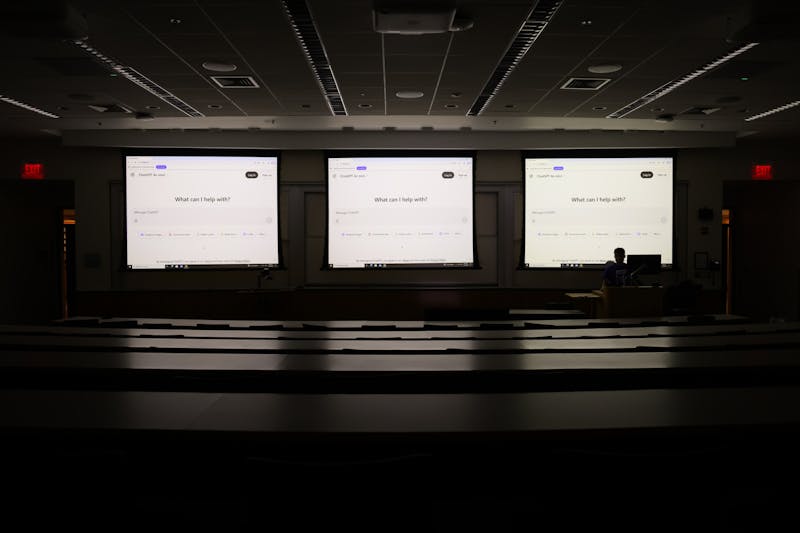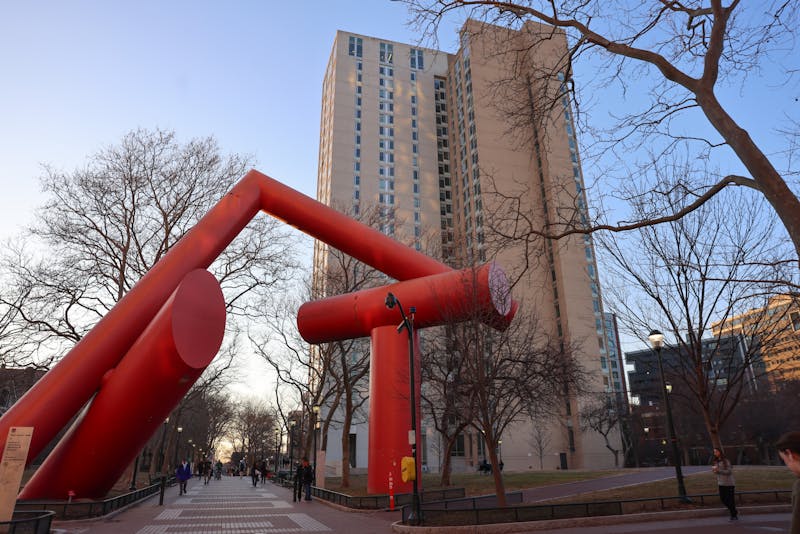
Joseph Fischer spent 27 years working for the Philadelphia Police, mostly investigating homicides. By 1998, he had qualified for retirement and a pension and was ready to move on.
"You handle 1,200 homicides, I guess you figure you've seen them all," he said.
Not wanting to retire from police work altogether, though, he decided to apply for a job with the Penn Police. He was hired, and, like all new Penn cops, assigned the rank of officer - the lowest in the department.
The longtime detective willingly went from tracking down murderers to riding a bicycle around campus.
Fischer's story is hardly unique among the 116 members of the Penn Police force.
Penn Police Chief Mark Dorsey said about half of his officers start their careers in the Penn Police, while the other half transfer from other departments.
With Philadelphia police officers eligible for pensions at the age of 50 and after 25 years of service, coming to Penn's private force can be an attractive option for veteran cops. Dorsey says there are currently 10 "retired" officers on Penn's force, and, like Fischer, any officer new to campus has to start at the bottom.
While drawing a pension on top of a salary may be a perk, Fischer, now Penn's captain of patrol, says there are a host of factors that play into the decision to switch jobs.
Dorsey said having these officers brings experience that new hires don't have.
"There's advantages to having such a diverse department," he said.
But experience could come with the price of youth. Some of the Penn Police officers out walking and riding beats on campus may be older - and perhaps less athletic - than the typical patrolman.
Dorsey noted, though, that for every job opening, he receives over 100 applications, allowing him to pick the most qualified candidates. He added that all officers are held to the same physical-fitness standards.
Still, efforts are underway to make those standards more strenuous for everyone, regardless of age.
Penn Police Captain Gerald Leddy is currently working to revamp the current annual fitness test, which he has said is not challenging enough.
Meanwhile, at some other universities, the police forces tend not to have the same sort of age mix that Penn does.
Steve Catalano, public information officer for Harvard Police, said the "great majority" of Harvard's 71 officers are "fresh hires."
That has to do in part with Massachusetts requirements, which, unlike Philadelphia, generally stipulate that officers must serve 32 years to qualify for maximum retirement benefits.
"Most of the departments around here, people are riding it out 'til their 60s," Catalano said. "A lot of times, at that point, the officers just want to retire.
"I think the nature of an earlier retirement or the ability to retire at [50] down there probably leaves more Philly officers to want to go work there," he said. "They're not ready to hang it up yet."
Catalano added, though, that he feels that more-experienced officers bring value to a department.
"You always want to balance veteran officers with new officers," he said.
Dorsey agreed that, overall, he looks for a "nice mixture."
"You get the best of both worlds," he said.
About this series: This week, the 'DP' examines the Penn Police Department and Philadelphia crime
The Daily Pennsylvanian is an independent, student-run newspaper. Please consider making a donation to support the coverage that shapes the University. Your generosity ensures a future of strong journalism at Penn.
DonatePlease note All comments are eligible for publication in The Daily Pennsylvanian.







